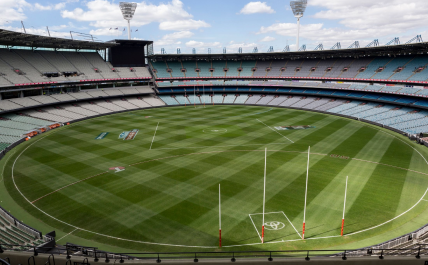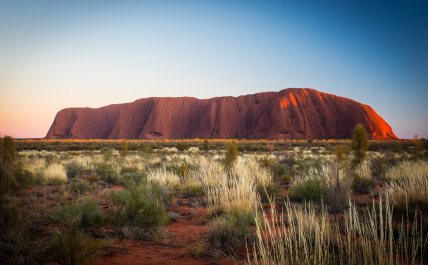Seasons
Australia experiences temperate weather for most of the year, but the climate varies due to the size of our continent.
The northern states generally enjoy warm weather, while the southern states have cooler winters. Additionally, Australia is one of the driest continents, with an average annual rainfall of less than 600 millimetres.
In Australia, as in all southern hemisphere countries, the seasons are opposite to those in the northern hemisphere. Summer spans from December to February, autumn from March to May, winter from June to August, and spring from September to November.
Food & Wine
Australia's pristine landscapes yield an astonishing array of delectable produce. The food and wine culture thrives on freedom and creativity, resulting in fresh, innovative flavors. This includes world-renowned wines and exciting fusion cuisine with unique ingredients.
What truly distinguishes Australia is its location – the breathtaking weather, abundant sunshine, remarkable natural beauty, and outdoor lifestyle. This combination allows you to savour the finest food and wine in some of the most spectacular settings. Australia excels at open-air dining like no other place.
Australian Time
Australia is divided into three separate time zones:
Australian Eastern Standard Time (AEST) | New South Wales, Victoria, Tasmania, Australian Capital Territory (ACT), and eastern locations of Queensland (Brisbane, Sunshine & Gold Coasts and Wide Bay Burnett region).
Australian Central Standard Time (ACST) | South Australia, Northern Territory, Broken Hill in west New South Wales.
Australian Western Standard Time (AWST) | Western Australia.
In summer, New South Wales, Victoria, South Australia, Tasmania and ACT turn their clocks forward one hour to Daylight Saving Time (DST).
Daylight savings is not observed in Queensland, Northern Territory or Western Australia.
Goods and Services Tax
Australia has a Goods and Services Tax (GST) of 10 percent, which is included in the displayed price.
You may be able to claim a tax refund on goods purchased whilst in Australia, in accordance with the Tourist Refund Scheme. A minimum spend of $AU300.00 per single purchase applies. TRS facilities are located at all international airports within Australia.
Shopping Hours
Shops and businesses typically operate from 9am to 5pm, Monday through Friday. Many stores and malls extend their hours until 9pm on Thursday and Friday evenings. In major cities, most stores are also open on Saturdays and Sundays. In resort towns, you'll often find stores open in the evenings as well.
Safety & Advice
Australia is generally a safe destination, allowing travellers to enjoy their journeys without significant concerns for personal safety and security. The country's stable political system, well-maintained roads, and high standard of healthcare contribute to its safety and ease of exploration. However, it's advisable to take the same precautions with your personal safety as you would at home. With common sense, you can safely experience Australia's captivating landscapes and wildlife, from the vast Outback to the sparkling ocean beaches.
The Australian sun is very strong and during summer, sunburn can occur in little as 15 minutes. Be sun smart and use appropriate sun protection.
Surf & water safety is paramount throughout Australia. During the months of October – April, swim in patrolled areas and adhere to the advice provided. Check with your Dive Instructor before scuba diving and always dive with a buddy.
Marine stingers are often present in tropical waters from November to April. During this time, swim within stinger-resistant enclosures and wear protective stinger suits.
Sharks & crocodiles exist around Australia’s coastlines and waterways. Observe safety signs and swim in designated areas only.
Australia’s extraordinary wildlife is a key attraction for visitors. Follow advisory signs and don’t approach unfamiliar or wild animals.
Emergency Assistance
In an emergency dial 000 from any landline or cellphone. This number is free to call.









